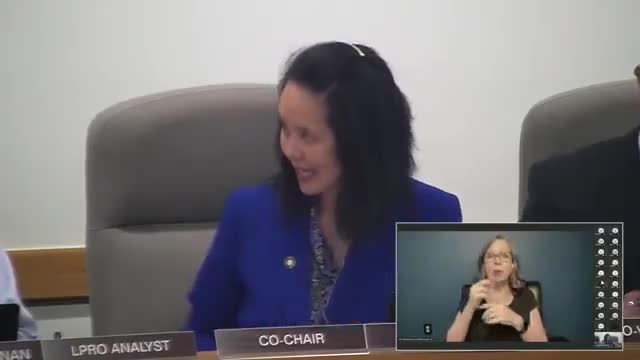Governor Kotak halts I-205 tolling project and alters privilege tax allocations
June 27, 2025 | Legislative, Oregon
This article was created by AI summarizing key points discussed. AI makes mistakes, so for full details and context, please refer to the video of the full meeting. Please report any errors so we can fix them. Report an error »

In a recent meeting of the Joint Committee on Transportation Reinvestment, significant discussions centered around the future of tolling on Interstate 205 and changes to the distribution of vehicle privilege taxes. The meeting, held on June 27, 2025, highlighted the Oregon Governor's directive to halt all work related to tolling on I-205, a decision that aims to alleviate concerns from residents about potential financial burdens.
Governor Kotak's letter, read during the session, confirmed that the Oregon Transportation Commission would not pursue tolling on I-205, effectively pausing any related projects indefinitely. This decision is expected to resonate positively with many community members who have expressed apprehension about the financial implications of tolling on their daily commutes.
Another key topic discussed was the reallocation of revenue from the vehicle privilege tax. The proposed changes would see a shift in funding distribution, with 38% directed to anchor projects, 38% to Great Streets, and a notable increase in funding for the Department of Environmental Quality's electric vehicle rebate program, which would receive an additional $5.6 million annually. However, this increase comes at the cost of a $6.2 million reduction in funding for the Connect Oregon program, raising concerns about the impact on transportation projects across the state.
As the committee moved forward, members emphasized the importance of public input, with many residents signed up to testify on these critical issues. The discussions reflect ongoing efforts to balance transportation funding with community needs, ensuring that decisions made today will support sustainable and equitable transportation solutions for Oregonians in the future.
The meeting concluded with a commitment to further engage with the public and stakeholders as the committee navigates these changes, underscoring the importance of transparency and community involvement in shaping Oregon's transportation landscape.
Governor Kotak's letter, read during the session, confirmed that the Oregon Transportation Commission would not pursue tolling on I-205, effectively pausing any related projects indefinitely. This decision is expected to resonate positively with many community members who have expressed apprehension about the financial implications of tolling on their daily commutes.
Another key topic discussed was the reallocation of revenue from the vehicle privilege tax. The proposed changes would see a shift in funding distribution, with 38% directed to anchor projects, 38% to Great Streets, and a notable increase in funding for the Department of Environmental Quality's electric vehicle rebate program, which would receive an additional $5.6 million annually. However, this increase comes at the cost of a $6.2 million reduction in funding for the Connect Oregon program, raising concerns about the impact on transportation projects across the state.
As the committee moved forward, members emphasized the importance of public input, with many residents signed up to testify on these critical issues. The discussions reflect ongoing efforts to balance transportation funding with community needs, ensuring that decisions made today will support sustainable and equitable transportation solutions for Oregonians in the future.
The meeting concluded with a commitment to further engage with the public and stakeholders as the committee navigates these changes, underscoring the importance of transparency and community involvement in shaping Oregon's transportation landscape.
View full meeting
This article is based on a recent meeting—watch the full video and explore the complete transcript for deeper insights into the discussion.
View full meeting
